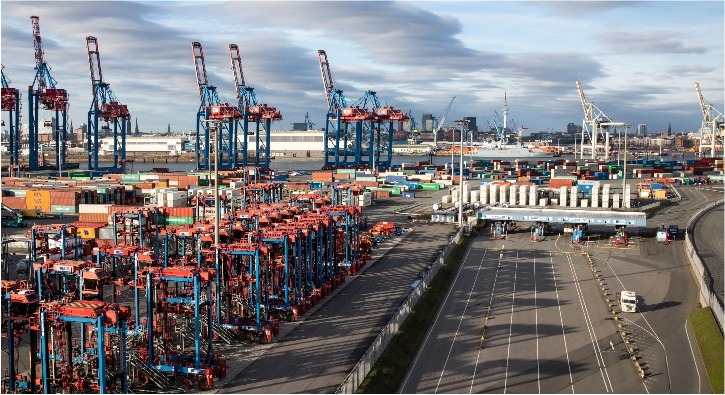
The German economy has officially entered a recession due to a decline in consumer spending, impacted by inflationary pressures. The gross domestic product (GDP) shrank by 0.3 percent in the first quarter compared to the previous quarter, marking the second consecutive quarter of contraction, as announced by the Federal Statistical Office.
When there are two consecutive quarters of negative growth, it is considered a technical recession. The fourth quarter of 2022 saw a 0.5 percent decrease in economic output.
The recession was largely driven by a contraction in private consumption, which fell by 1.2 percent in the first quarter. This decline may be attributed to consumers’ reduced purchasing power resulting from high inflation. Additionally, government consumption also decreased by 4.9 percent. However, there were positive contributions from investments, which grew by 3.9 percent, and foreign trade also provided support to the economy.
Looking ahead, the Bundesbank expects slight growth in the coming months. Their monthly report suggests that economic output should increase slightly in the second quarter of 2023. Factors such as easing delivery bottlenecks, a high order backlog, and lower energy prices are anticipated to contribute to a recovery in the industry. The Deutsche Bundesbank further expects that this recovery, coupled with the global economy gaining momentum, will support exports.
The German federal government forecasts a GDP growth of 0.4 percent for this year. A stronger increase of 1.6 percent is expected in 2024. In comparison, the economy experienced a growth rate of 1.8 percent last year.
While the German economy currently faces challenges, the expectation of slight growth and positive indicators in investments and foreign trade provide some optimism. However, the decline in consumer spending and persistent inflationary pressures underscore the need for strategies to address these issues and stimulate sustainable economic growth.
A strong upswing is not expected in the immediate future, according to the Bundesbank. The current monthly report suggests that there will be at least slight growth in the spring of 2023. The easing of delivery bottlenecks, a high order backlog, and lower energy prices are factors that should contribute to a recovery in the industry. The Deutsche Bundesbank also anticipates that this recovery, combined with the global economy gaining momentum, will support exports.
The German federal government has set its GDP growth projection at 0.4 percent for this year. In 2024, a stronger increase of 1.6 percent is expected. This is in comparison to the 1.8 percent growth experienced last year.
Despite these forecasts, the recent data on the German economy indicates a challenging situation. The decline in consumer spending has played a significant role in the recession. Private consumption contracted by 1.2 percent in the first quarter. One likely reason for this is the loss of purchasing power among consumers due to high inflation. Additionally, government consumption also fell by 4.9 percent during this period.
However, there were some positive indicators. Investments showed growth of 3.9 percent, providing a boost to the economy. Foreign trade also contributed positively, further supporting the overall economic landscape.
The situation in the German economy serves as a reminder of the importance of addressing challenges related to consumer spending and inflation. While there are expectations of slight growth and positive developments in investments and foreign trade, it is crucial for policymakers to implement measures that foster sustainable economic growth. Balancing the recovery of industries, supporting exports, and addressing inflationary pressures will be key to ensuring the German economy’s stability and resilience in the face of global economic dynamics.
As the country moves forward, policymakers and economic stakeholders will need to closely monitor the indicators and take proactive measures to stimulate growth, protect purchasing power, and navigate the challenges posed by the ever-changing global economic landscape.
